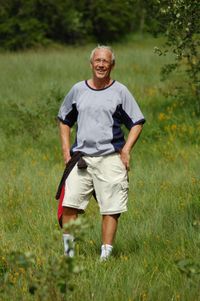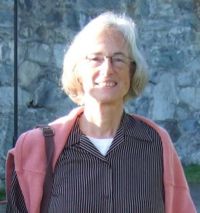Difference between revisions of "Advisory Board"
| Line 25: | Line 25: | ||
(More details on all of this can be seen on [[ Hellan_CV09+public ]].) | (More details on all of this can be seen on [[ Hellan_CV09+public ]].) | ||
| + | |||
| + | |||
| Line 68: | Line 70: | ||
| + | ===Abdulaziz Y. Lodhi=== | ||
| + | [http://en.wikipedia.org/wiki/Bantu_languages Bantu languages] | ||
| + | |||
| + | |||
| + | [[File:Lodhi.jpg|thumb|300px|right]] | ||
| + | |||
| + | Abdulaziz Y. Lodhi (1945, Zanzibar), was educated in Zanzibar, Daressalaam, Stockholm, Gothenburg. | ||
| + | |||
| + | Since 1970 he has been working with Swahili and East African Bantu languages, has conducted fieldowork in East Africa and India and as founder of Swahili and Bantuistics in the Nordic countries, he has published extensively on various branches of Swahilistics at Uppsala University since 1974. His PhD from Gothenburg is on language contacts and Oriental loans in Eastern Africa. Since 2003 he has been working on Swahili lexicography projects in Nairobi and Daressalaam. | ||
| + | |||
| + | His other research interests are history and cultural anthropology of the Swahili Coast and East African Diaspora in the Indian Ocean. | ||
| + | |||
| + | For details please visit please visit [http://www.lingfil.uu.se my homepage] | ||
Revision as of 11:39, 5 May 2010
The TypeCraft Advisory Board are linguists who have agreed to give TypeCraft annotators help concerning their annotations and the on-line representation of their data. Every language family or group of languages represented in TC has its own Advisor; at present we have three advisors; we are still looking for an advisor for the Bantu languages and for the Sami languages. In addition a technical and an administrative advisor will join the team of experts.
Contents
Biographies
Felix Ameka
Felix K. Ameka lectures in the Department of African Languages and Cultures of Leiden University and is also an Associate Researcher of the Language and Cognition Group at the Max Planck Institute for Psycholinguistics, Nijmegen. He has a wide range of interests and has fieldwork experience in Australia and West Africa. Apart from the description and documentation of languages, he is interested in the cultural, cognitive and human social interactional motivations of grammar and how speakers use grammar. He has conducted field-based research and published extensively on the grammar, semantics, and pragmatics of Ewe, his mother tongue, and on other West African languages like Akan. He is currently involved in and coordinates the documentation of four of the little studied Ghana-Togo-Mountain languages: Likpe, Logba, Nyagbo and Tafi and recently Guang languages. These languages are massively influenced by surrounding bigger languages like Ewe and Akan.
As a trained linguist, he has a continuing concern about the role of native knowledge in documentary linguistics. He is also interested in the challenges that documentary linguistics poses for linguistic training and academic linguistic practices.
His other research interests lie in typology and comparative grammar; anthropological linguistics, ethnography of communication, cross-cultural semantics and pragmatics. He is also interested in how the structure and semantics of languages are affected and modulated over time and when they come into contact with other languages.
Lars Hellan
North Germanic Languages
With some background in philology and philosophy, I was brought up as an early-generation generative grammarian, with Norwegian as main field. Being theoretically first oriented towards Government-Binding theory and Montague Grammar, I later - late 90ies - moved more towards constraint-based frameworks such as HPSG, I got interested in computational grammar implementation, and since early 90ies also typologically oriented research.
(More details on all of this can be seen on Hellan_CV09+public .)
Mary Esther Kropp Dakubu
Mary Esther Kropp Dakubu has been working on languages of West Africa, particularly languages spoken in Ghana, since about 1962, and has been associated with the University of Ghana since 1964. She received her PhD in West African Languages from the School of Oriental and African Studies, University of London, after a BA (English and Philosophy) from Queeen's University, Kingston ON Canada and an MA in Linguistics from the University of Pennsylvania. Her (relatively) recent publications include the following:
2009 Parlons Farefari. Paris: l'Harmattan.
2007 Gurenɛ-English Dictionary Vol.1: Gurenɛ-English Dictionary Vol.2: English-Gurenɛ Glossary. Legon: Linguistics Dept.
2006 Parlons Ga. Paris: l'Harmattan.
2005 Dagaare Grammar. Collected Language Notes No. 26. Legon: Institute of African Studies.
2002 Ga Phonology. Legon: IAS.
2000 Ga-English Dictionary with English-Ga Index. Accra: Black Mask Publishers.(A new edition is in press)
1997 Korle Meets the Sea, a Sociolinguistic History of Accra. New York and Oxford: Oxford University Press.
1988 editor and major contributor, The Languages of Ghana. London: Kegan Paul International Ltd.
1987 The Dangme Language: an introductory study. London and Basingstoke/Accra: Macmillan/Unimax.
1981 One Voice: the linguistic culture of an Accra lineage. Leiden: African Studies Center.
Articles:
2008a Ga verb features. In Ameka and Dakubu eds., Aspect and Modality, Amsterdam/Philadelphia: John Benjamins Publishing Company. Pp. 91-134.
2008b with Felix K. Ameka, Imperfective constructions: progressive and prospective in Ewe and Dangme. In Ameka and Dakubu eds., Aspect and Modality pp. 215-289.
2008c with Akosua Anyidoho, Ghana: indigenous languages, English, and an emerging national identity. Chapter 8 in Andrew Simpson, ed., Language and National Identity in Africa. Oxford University Press. Pp. 141-157.
Abdulaziz Y. Lodhi
Abdulaziz Y. Lodhi (1945, Zanzibar), was educated in Zanzibar, Daressalaam, Stockholm, Gothenburg.
Since 1970 he has been working with Swahili and East African Bantu languages, has conducted fieldowork in East Africa and India and as founder of Swahili and Bantuistics in the Nordic countries, he has published extensively on various branches of Swahilistics at Uppsala University since 1974. His PhD from Gothenburg is on language contacts and Oriental loans in Eastern Africa. Since 2003 he has been working on Swahili lexicography projects in Nairobi and Daressalaam.
His other research interests are history and cultural anthropology of the Swahili Coast and East African Diaspora in the Indian Ocean.
For details please visit please visit my homepage
Gautam Sengupta
Gautam Sengupta teaches linguistics and cognitive science at the University of Hyderabad, India, where he is currently an associate coordinator of the Center for Neural and Cogntive Sciences. He studied linguistics and philosophy at the University of Massachusetts at Amherst. His areas of interest include formal syntax and semantics, philosophy of language and experimental psycholinguistics.

